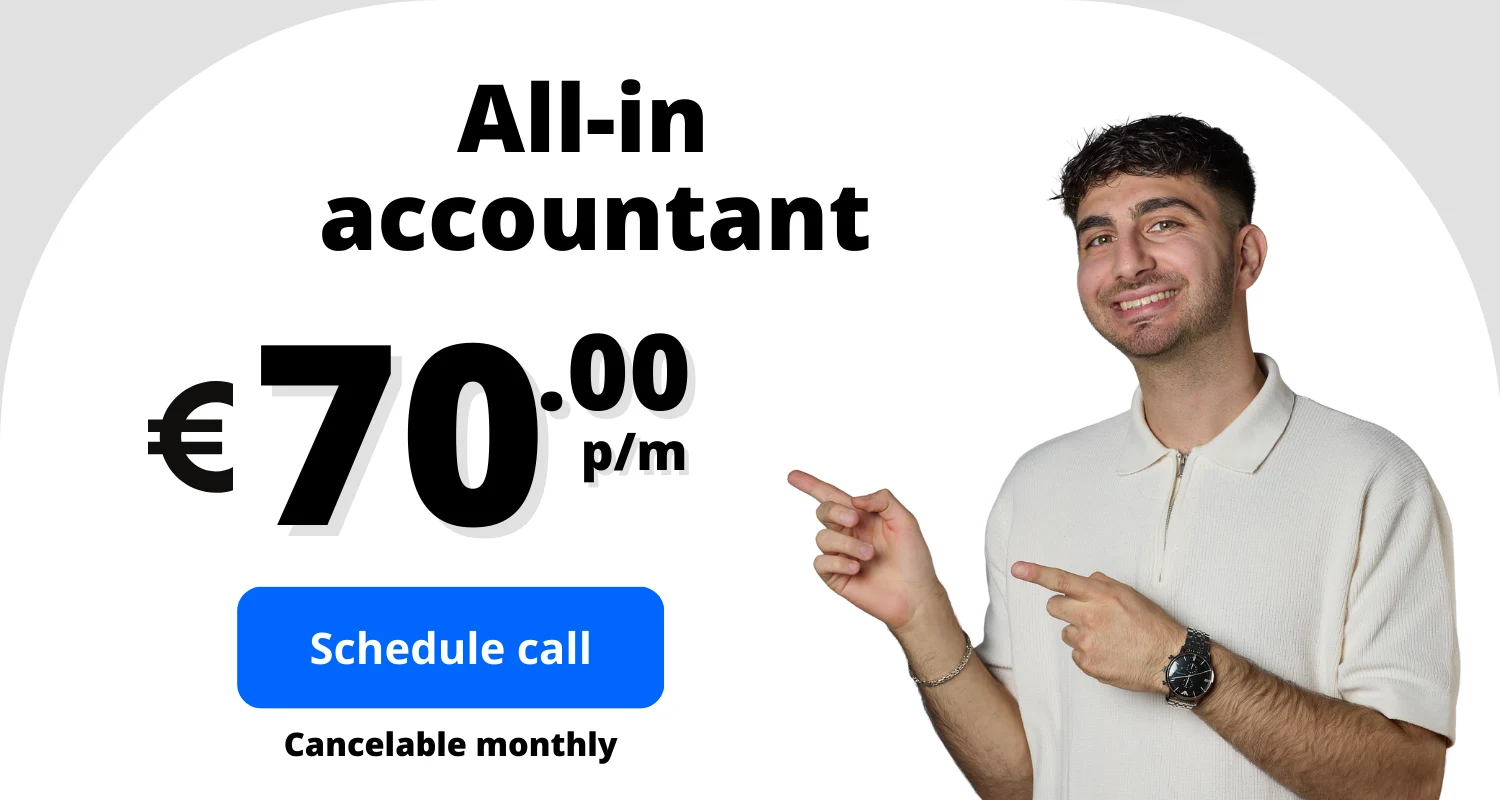What is a business account?
A business account is a checking account you use for your company's income and expenses. It is a separate account in your company's name, keeping your administration orderly. You can link the account to accounting software, set up direct debits and make payments under your company name.
Difference between a private and business account
A private account is for personal use, a business account for business activities. If you do use your private account for business transactions, the bank can take action against you. Also, a business account looks more professional: your customers will see your company's name when making payments.
In addition, a business account offers more features, such as multiple debit cards, links to your accounts and a business credit card.
Is a business account mandatory for self-employed people?
Legally, a business account is not mandatory for self-employed people with a sole proprietorship. However, the tax authorities and the Chamber of Commerce recommend it, because it gives a lot of overview. Banks often do not allow business use of private accounts.
If you have a bv, then a business account is indeed mandatory. A bv is a separate legal entity, so it must have its own bank account.
Advantages of a business account
A business account makes it easier to keep a grip on your cash flows. Your administration is clear and you can immediately see which income and expenses are business. In addition, you can deduct expenses from the account as business expenses.
Another advantage is the professional look. Payments are made under your company name, which inspires confidence in customers. Moreover, banks offer additional features for entrepreneurs, such as iDEAL for web shops or links to accounting programmes.
What should you look out for when choosing an account?
Several factors come into play when choosing a business account:
- Costs: look at monthly fixed fees as well as transaction fees. Some banks charge only per transaction, others a fixed amount per month.
- Accounting link: check that your bank works well with your accounting software.
- Ease of use: how does the app or online environment work? Can you easily manage multiple accounts?
- Customer service: if personal contact is important to you, choose a bank with local branches.
- Additional services: think business savings accounts, credit cards or a limit on being in the red.
The best business accounts and costs in 2026
Bank | Cost per month | Details |
€0 (pay-per-use) | No fixed costs, €0.39 per transaction | |
€9,90 | First 6 months free, including debit card | |
€9,90 | First 3 months free, transactions €0.12-€0.15 | |
€7,95 | First 3 months free, 1,000 transactions per year | |
€7,95 | Sustainable choice, first 3 months free | |
€12,50 | Sustainable bank, stricter admission | |
€7,00 | First year free, 500 transactions included | |
from €0 | Free basic package, many digital features | |
€0 | Free fintech account for freelancers |
Business account cheap
The cheapest option depends on your usage. If you do few transactions, then Rabobank with pay-per-use is advantageous. Bunq and Revolut are free, but sometimes limit features. Knab offers a competitive rate with many included features, especially interesting for starting self-employed people.
Business account free of charge
Free business accounts exist, but mostly at fintechs like bunq or Revolut. With traditional banks, you almost always pay monthly fees. Free packages can be handy for start-ups, but check that you have enough features.
Business credit card application
A business credit card is handy for online purchases or travel. You easily keep private and business separate and have insight into your monthly expenses. Most banks offer a business credit card, often for an annual fee of €35 to €75.
You can also opt for a prepaid or debit credit card with no credit feature. The fees are deductible and applications can be made directly through your bank once your Chamber of Commerce number is active.
Switching to another business account
With the Switching Service, you easily switch to another bank. Payments to your old account are automatically forwarded to your new account for thirteen months. So you do not have to pass on everything yourself, although it is still smart to inform customers and suppliers about your new IBAN.
Frequently asked questions
Do you need a business account as a self-employed person?
No, it is not compulsory, but highly recommended. You keep track and prevent the bank from being difficult about business use of a private account.
What is the best business account for self-employed people?
It depends on what you think is important. Knab is popular for its low fees, Rabobank for its flexible model with no fixed fee, and ASN or Triodos if sustainability is important.
When can you open a business account?
There is no limit to the amount in your business account. However, De Nederlandsche Bank's deposit guarantee applies up to €100,000 per bank, together with your private account.
How much money are you allowed to have in your business account as a self-employed person or sole trader?
At higher profits (from approximately €100,000) or if you want to limit liability, a PLC may be more advantageous.






